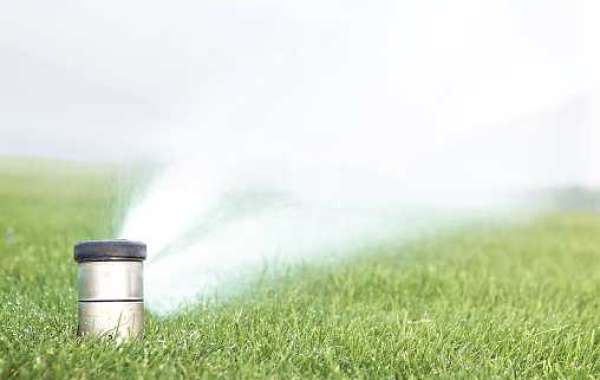Automated Irrigation Market Synopsis:
The automated irrigation market is projected to reach approximatelyUSD 9,365.02 millionby 2030, at aCAGR of 5.3%from 2022 to 2030.
Agriculture is the main occupation of many all over the world. Despite the existence of other sectors, the existence of agriculture shows the confidence levels of the farmers. Agriculture involves many tasks. When the system of automation is introduced in agriculture, it helps the farmers in earning more revenue. The process of irrigation can be automated, where the monitoring of the water, soil, and weather conditions takes place systematically. This sort of automation can be done through the installation of controllers and sensors. When things are automated and controlled, the wastage of water is also controlled. The introduction of IoT-based systems in agriculture has bought new changes in farming and the farmer can benefit from the same.
Automated Irrigation Market Segmental Review:
TheAutomated Irrigation Market Trendscan be segmented based on the components, type, application, end-use, and region. According to the component category, the market is divided into sprinklers, valves, controllers, and sensors. According to the type of category, the market is divided into volume-based, time-based, real-time-based, and computer-based. The segments like soil management, water resource management, and ground water management come under the application category. The segments under the end-user category are agricultural and non-agricultural. According to the regional category, the market is divided into North America, Europe, Asia-Pacific, and the Rest of the World.
Competitive Analysis:
The market comprises tier-1, tier-2, and local players. The tier-1 and tier-2 players have reach across the globe with diverse product portfolios. Companies such as The Toro Company (US), Hunter Industries (US), and Netafim (Israel)dominate the global automated irrigation market due to brand reputation, product differentiation, financial stability, strategic developments, and diversified regional presence. The players are focused on investing in research and development. Furthermore, they adopt strategic growth initiatives, such as expansion, product launches, joint ventures, and partnerships, to strengthen their market position and capture a large customer base.
Who are the major market participants for irrigation automation?
Prominent players in the global automated irrigation market include The Toro Company (US), Hunter Industries (US), Netafim (Israel), Stevens Water Monitoring Systems Inc. (US), Valmont Industries, Inc. (US), Lindsay Corporation (US), Jain Irrigation Systems Ltd (India), HydroPoint Data Systems, Inc. (US), Nelson Irrigation (US), and Galcon (Israel).
Regional Outlook:
The controller segment of the component category dominates the market. This is because of the increase in demand for semi-automatic systems like volume-based and time-based systems. According to the type of category, the time-based segment contributes maximum to the market share. Time-based systems help in controlling the labor cost, irrigation process, and consumption of fuel. A time-based system permits the farmer to monitor the crops regularly. According to the end-user category, the non-agricultural segment is found using automated systems. Gardens, golf courses, residential purposes, pastures, turf, and sports grounds are some examples of the non-agricultural segment. According to the regional category, North America is dominating the market followed by the Asia-Pacific region.
Industry Development:
The global analysis of theSurgical Irrigationmarket states that the market is expected to reach 9365.02 million US dollars at a 5.3% CAGR by the end of 2028. The adoption of new technologies creates challenges and new opportunities for automation service providers. Though the systems are very helpful, their installation cost becomes a burden on the local farmer and hence hampers the market growth. A developed country can afford the cost of such automated irrigation systems, but in an underdeveloped country, the local farmer will not be able to install such automated services even though they are very beneficial. Adoption of organic practices in farming has created new opportunities for market growth. Any research and development activity requires a huge investment. A focus on sponsoring the research and development activities will provide good information that may be beneficial for the growth of the market. The progress of the market has given rise to strategies like collaborations, partnerships, expansions, joint ventures, mergers, and acquisitions between major players providing automated irrigation systems.
About Market Research Future:
Market Research Future (MRFR) is a world-renowned market research company that offers a wide range of services, complete with accurate and precise analysis about diverse markets, sub-markets, and target consumers. Our approach is a combination of extensive information and multiple data sources that help provide an exhaustive comprehension about the latest major developments to the client, in addition to future events and what measures and decisions to take based on the same.
Our fast-emerging market research firm is armed with an adept research analysts team that focuses on gathering useful data and analytics in terms of economic and technological advances. Our proficient analysts conduct industrial visits in a bid to achieve reliable and accurate information from established market participants. One of our foremost objectives is to keep the client well-versed with all the lucrative opportunities as well as challenges surrounding various global markets. We offer step-by-step guidance to our clients, through consulting and strategic services, enabling them to arrive at a practical and effective decision.
Contact Us:
Market Research Future (part of Wantstats Research and Media Private Limited),
99 Hudson Street, 5Th Floor,
New York, New York 10013
United States of America
+1 628 258 0071








